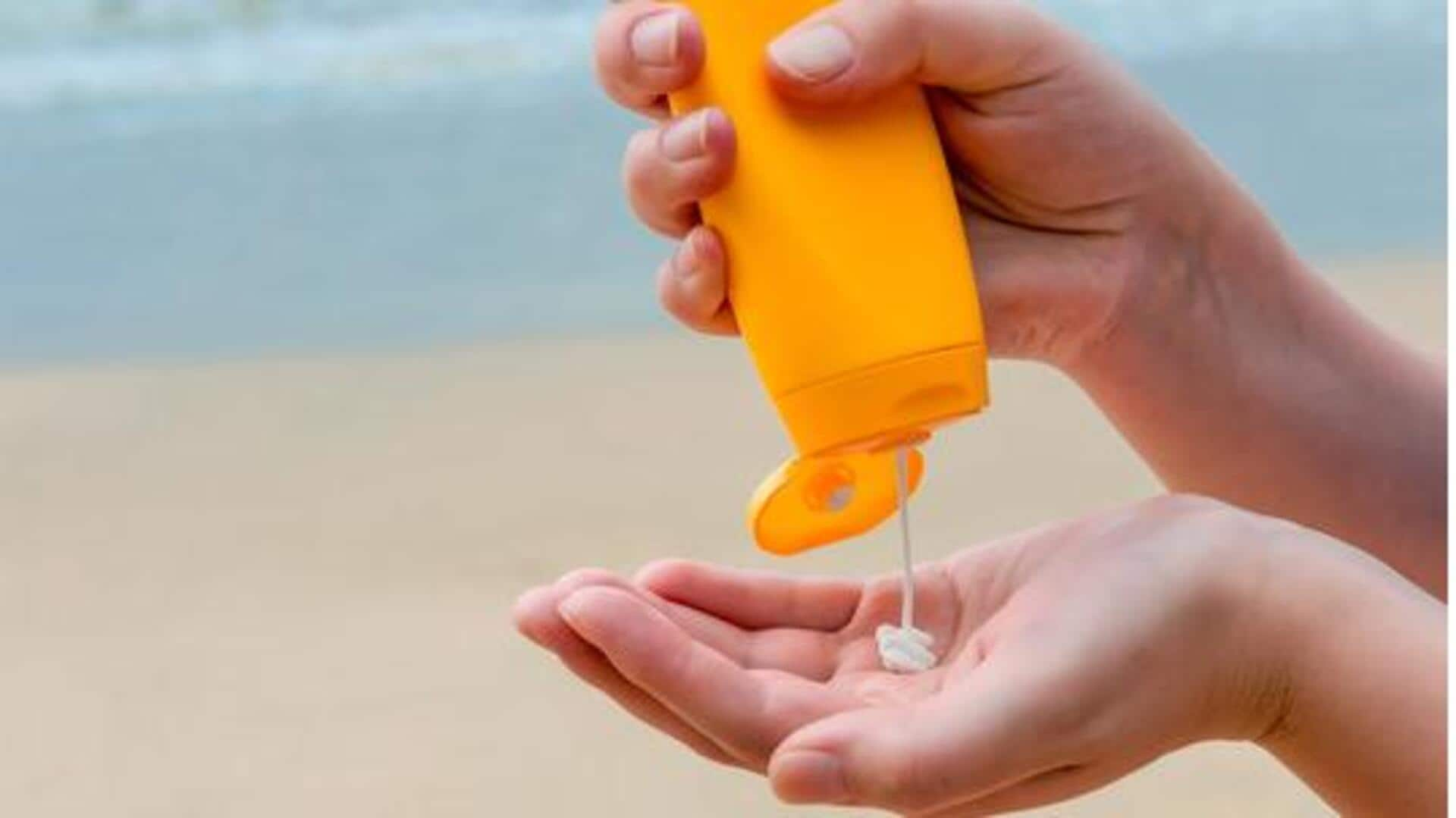
5 sunscreen myths you should stop believing
What's the story
Sunscreen is an integral part of skincare, however, several myths surround its usage. These misconceptions can result in improper application and reduced efficacy. Knowing the reality about sunscreen can allow you to protect your skin better from the harmful UV rays. Here, we debunk five common myths surrounding sunscreen, giving you the right information to make informed choices about your sun protection routine.
Weather misconception
Myth: Sunscreen is only for sunny days
We all believe sunscreen is unnecessary on cloudy or rainy days. But up to 80% of UV rays can penetrate clouds and reach your skin. Meaning, even when the sun isn't out, your skin is still at the risk of damage from UV exposure. Applying sunscreen daily, regardless of the weather, ensures you protect yourself regularly from these harmful rays.
Skin tone misunderstanding
Myth: Dark skin doesn't need sunscreen
Another myth is that people with darker skin tones don't need sunscreen because they have more melanin, which provides natural protection. Although melanin does provide some protection against UV rays, it doesn't reduce the risk altogether. Dark-skinned people are still prone to sun damage and should apply sunscreen regularly to avoid long-term effects such as premature aging and skin cancer.
SPF confusion
Myth: Higher SPF means better protection
Many people think that a higher SPF number means better protection from the sun's rays. In reality, SPF 30 blocks about 97% of UVB rays, whereas SPF 50 blocks around 98%. The difference in protection between the two SPFs is negligible. It's more important to apply enough sunscreen and reapply every two hours rather than just depend on a high SPF number.
Reapplication reality
Myth: One application lasts all day
Some also think that applying sunscreen once in the morning gives all-day protection. However, factors such as sweating, swimming, or even towel drying can wear off its efficacy. To remain optimally protected all day long, it's important to reapply every two hours or immediately after swimming or sweating profusely.
Vitamin D concern
Myth: Sunscreen causes vitamin D deficiency
There's a myth that sunscreen blocks vitamin D synthesis entirely, but it only slightly reduces UV exposure necessary for vitamin D production. Some sunlight still penetrates, allowing vitamin D synthesis during daily outdoor activities. For optimal health, sunscreen should be used as directed, and vitamin D levels maintained through diet or supplements as advised by a healthcare professional.